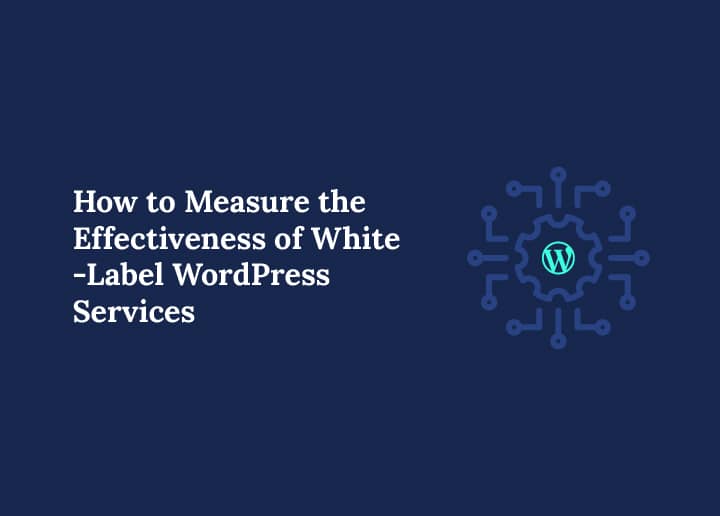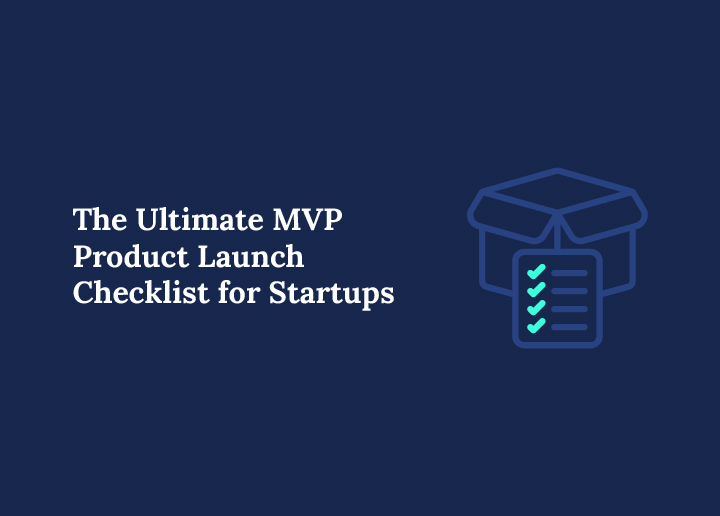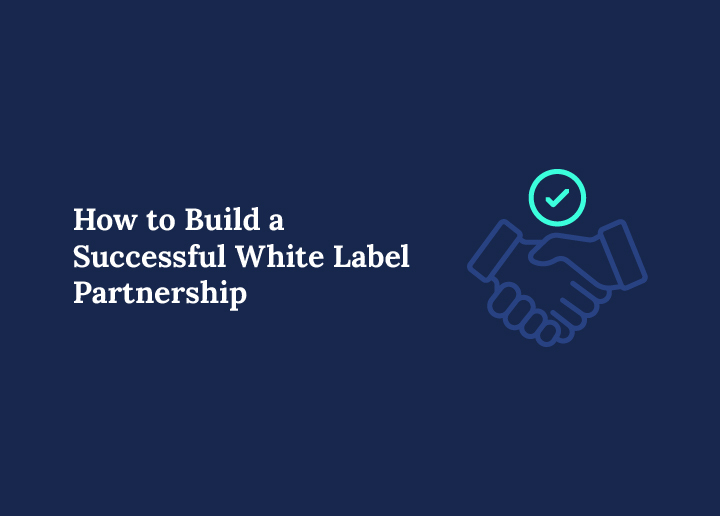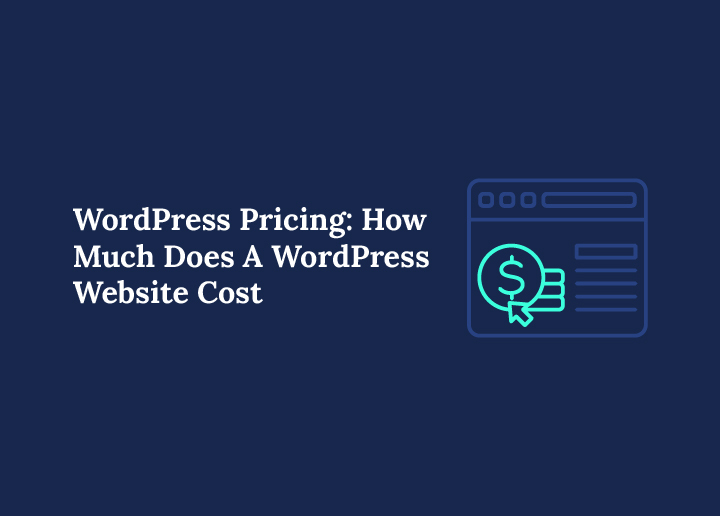If you’re here, you’re probably curious about how to measure the effectiveness of white-label WordPress services, or maybe you’re just dipping your toes into the world of white-label services and want to know what all the buzz is about. Well, you’re in the right place.
In this article, we’re going to delve deep into the realm of white-label WordPress services and uncover the key steps you need to take to ensure their effectiveness. From understanding the concept to evaluating user experience, assessing website performance to analyzing customer feedback, we’ve got you covered.
Whether you’re a seasoned WordPress developer looking to fine-tune your services or a business owner considering outsourcing your website projects, this guide will provide you with invaluable insights and practical tips to maximize the effectiveness of white-label WordPress services.
Specific Success Metrics for White-label WordPress Services
When it comes to measuring the effectiveness of white-label WordPress services, defining success metrics is crucial. However, it’s essential to note that the specific metrics you’ll focus on can vary depending on the type of white-label service you’ve chosen.

For instance, if you’ve partnered with Seahawk, we offer a wide range of white-label WordPress services including WordPress design, development, migration, site speed optimization, and maintenance, your success metrics may differ based on the nature of the service provided.
A little more detail here:
WordPress Development Services
If you’re utilizing white-label WordPress development and design services, success metrics may include:
- Client satisfaction with the design aesthetics and functionality.
- Number of bugs or errors reported post-launch.
- Time taken to complete the project within the specified scope.
Read More: Best White-label WordPress Development Companies
Site Speed Optimization
When it comes to site speed optimization, metrics might include:
- Page loading speed improvements measured using tools like Google PageSpeed Insights or GTmetrix.
- Reduction in bounce rate attributed to faster loading times.
- Enhanced user experience indicated by an increase in session duration and page views.
Learn: Ways to Speed Up WordPress Admin
WordPress Maintenance Services
For maintenance services, success metrics may revolve around:
- Frequency and severity of website downtime or issues.
- Timeliness and effectiveness of response to client support requests.
- Overall website performance and security maintenance.
Check Out: Best WordPress Website Maintenance Service Providers
WordPress Migration Services
For migration services, success metrics could involve:
- Successful transfer of data from the existing platform to WordPress.
- Minimal downtime during the migration process.
- Retention of website functionality and SEO ranking post-migration.
Also Know: Best WordPress Website Migration Agencies
Regardless of the specific services you’re utilizing, it’s essential to align your success metrics with your business goals and objectives. By understanding what success looks like for your business, you can seamlessly measure the effectiveness of white-label WordPress services.
The Best White-label WordPress Services for You!
This is your one-stop-solution for WordPress. Our WordPress experts are here to deliver the best WordPress services for your agency.
Other Parameters for Measuring White-Label Success
When it comes to measuring the effectiveness of white-label WordPress services, there are additional parameters beyond the technical aspects that play a crucial role.
When it comes to measuring the success of white-label WordPress services, there are additional parameters beyond the technical aspects that play a crucial role. Let’s explore two key factors: Customer Feedback and Measuring Return on Investment (ROI).
Customer Feedback

Customer feedback serves as a valuable source of insights into the effectiveness of white-label WordPress services. Whether it’s through surveys, feedback forms, or social media listening, understanding what clients have to say can provide invaluable guidance for improvement.
Encourage clients to provide feedback through surveys or feedback forms post-project completion. This can help gauge their satisfaction levels, identify areas for improvement, and gather testimonials for future marketing efforts.
You can also monitor social media channels for mentions, comments, and reviews related to your white-label services. Engage with clients directly to address any concerns and leverage positive feedback to showcase your expertise and credibility.
Measuring Return on Investment (ROI)
Determining the return on investment (ROI) of white-label WordPress services is essential for evaluating their financial viability and overall effectiveness.
Evaluate the total costs associated with white-label WordPress services, including development, design, maintenance, and any additional expenses. This can include both direct costs, such as service fees, as well as indirect costs like staff time and resources.
Track the revenue generated as a result of the white-label services provided. This could include revenue from new client acquisitions, upsells, or recurring revenue from maintenance contracts. Compare this revenue to the costs incurred to determine the overall profitability of the services.
Use calculate ROI ratios to assess the efficiency and effectiveness of your white-label WordPress services. Divide the net profit generated by the total investment (costs) and multiply by 100 to express the ROI as a percentage. This can help businesses understand the value they’re deriving from their investment in these services.
Revenue and Profit Margins
One of the clearest indicators of white label services performance is how they impact your bottom line. A reliable white label agency should enable you to offer more services, like WordPress maintenance, website development, and ongoing support, without hiring in-house resources. This cost efficiency leads to improved profit margins and allows digital agencies to take on more clients with minimal operational strain.
An ideal white label provider lets you focus on business development while they handle the backend tasks. This setup not only saves time and overhead but also improves your ability to scale without sacrificing customer satisfaction or quality.
Market Penetration and Expansion
A successful white label WordPress agency enables your business to expand into new niches, industries, or locations. Whether you’re targeting local WordPress website clients or large-scale digital marketing projects, a skilled white label development partner allows for seamless integration of new service offerings into your existing operations.
Through a proven track record, white label partners help agencies build a strong portfolio and case studies, which are essential for gaining trust and entering new markets. Strong brand identity and consistent results lead to repeat customers and more referrals.
Operational Efficiency
Efficiency is more than speed, it’s about running smoother operations across the board. The right white label agencies help boost operational efficiency by offering structured workflows, direct communication, and streamlined delivery processes. By offloading technical work like maintaining websites, security monitoring, and website maintenance, your team can focus on strategy, creative work, and client satisfaction.
For digital agency owners, working with white label partners who understand your processes means fewer revisions, clearer timelines, and better project alignment, leading to a more agile, scalable business model.
Fostering Stronger Relationships in White-Label Collaborations
Building a strong white-label partnerships is key to the success of white-label arrangements. Let’s explore strategies for strengthening bonds in white-label partnerships:

- Communication: Establish clear and open lines of communication with your white-label partners. Whether it’s through regular meetings, email updates, or project management tools, ensure that all parties are informed and aligned on project goals, timelines, and expectations.
- Collaboration: Encourage collaboration and knowledge sharing between your team and your white-label partners. Share insights, best practices, and industry trends to foster mutual growth and learning. This not only strengthens the partnership but also enhances the quality of the services delivered.
- Trust: Maintain transparency and honesty in your dealings with white-label partners. Be upfront about challenges, risks, and limitations, and work together to find solutions. Building trust is essential for long-term partnerships and lays the foundation for successful collaboration.
- Feedback: Conduct regular performance reviews and provide constructive feedback to your white-label partners. Recognize their contributions and address any areas for improvement in a supportive manner. By fostering a culture of continuous improvement, you can enhance the quality of the services delivered and strengthen the partnership over time.
Conclusion
So, there you have it! We’ve journeyed through the ins and outs of measuring the effectiveness of white-label WordPress services, from understanding success metrics for different WordPress services to fostering stronger partnerships.
We’ve also delved into the financial aspect, discussing how to measure return on investment and make informed decisions based on cost analysis. And let’s not forget the importance of communication, collaboration, and trust in building lasting partnerships with white-label service providers.
These insights and strategies can help you maximize the potential of your WordPress projects. So, go ahead, apply what you’ve learned, and unlock the power of white-label WordPress services!
FAQs About White-Label Services
What are white-label services in WordPress and Shopify development?
White-label services in WordPress and Shopify development allow agencies to offer professional website solutions under their own brand, without actually building the sites themselves. A white-label partner does all the behind-the-scenes work, like coding, designing, and testing, while your agency handles the client relationship.
Whether it’s a WordPress site or a Shopify store, these services are ideal for agencies that want to scale their business without expanding their in-house team. It’s a smart way to increase cost effectiveness while still delivering high-quality work that contributes to your agency’s long term success.
How can I tell if my white-label partner is helping my business?
A good white-label partner should feel like an extension of your own team. If your projects are being delivered on time, your clients are happy, and you’re able to take on more work without hiring more staff, that’s a great sign.
Look at whether your WordPress site or Shopify projects are launched smoothly, with minimal back-and-forth or revisions. Are they offering consistent communication and solving problems quickly? If yes, they’re likely contributing to your agency’s growth and improving your cost effectiveness and client satisfaction.
What KPIs should I track for white-label website design?
To measure the success of your white-label collaboration, focus on a few key metrics:
- Client satisfaction: Are clients happy with the websites delivered?
- Project turnaround time: Are sites being completed efficiently?
- Revenue growth: Has your agency’s income increased due to the added capacity?
- Repeat business: Are clients coming back for more services?
- Operational costs: Has outsourcing improved your cost effectiveness?
These key performance indicators (KPIs) help you evaluate whether your white -abel partner is helping you achieve long term success.
Are white-label services worth the money?
Absolutely, if you choose the right partner. For many agencies, white-label services are a game-changer. You get to offer more without hiring full-time staff or taking on extra overhead. That’s a win for cost effectiveness.
Plus, a reliable partner helps you build a reputation for quality WordPress site or Shopify store delivery. Over time, this leads to client trust, better key performance indicators, and sustainable long term success.
Can I switch white-label partners if I’m not happy with the results?
Yes, and you absolutely should if things aren’t working out. Your agency’s reputation is on the line, and your clients deserve quality service. If your current partner isn’t meeting deadlines, causing communication issues, or affecting your key performance indicators, it may be time to explore other options.
A better white label partner can help you regain cost effectiveness, improve project quality, and get your agency back on track toward long term success.



